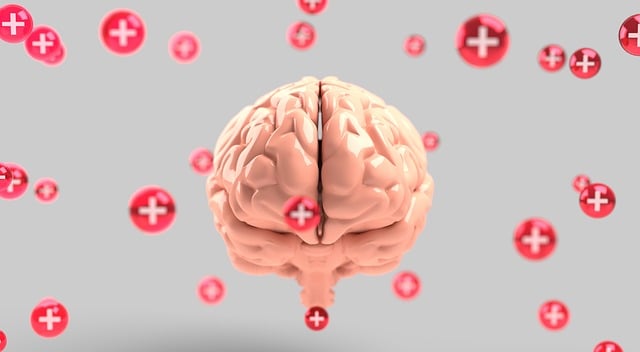Mental health advocacy, exemplified by initiatives like Colorado Springs Eating Disorders Therapy (CSEDT), is vital for creating supportive communities. By raising awareness, combating stereotypes, and promoting understanding, these efforts ensure equal access to quality mental health care. CSEDT, through community collaboration, offers tailored therapy and workshops, normalizing conversations around eating disorders and improving outcomes. Effective advocacy requires integrated services, mental wellness coaching, stigma reduction campaigns, and policy changes to foster inclusive environments where individuals can seek help without judgment.
Mental health advocacy initiatives are vital to fostering a supportive society and ensuring access to quality care. This article explores the power of such efforts, highlighting key strategies and successful examples like Colorado Springs Eating Disorders Therapy—a community-engaging model that demonstrates impact.
We’ll delve into “Understanding Mental Health Advocacy,” analyze effective initiatives, and provide insights from a case study, offering a comprehensive guide for those aiming to make a difference in mental health support systems, especially through programs like Colorado Springs Eating Disorders Therapy.
- Understanding Mental Health Advocacy: A Foundation for Change
- Colorado Springs Eating Disorders Therapy: A Case Study in Community Engagement
- Strategies for Effective Mental Health Advocacy Initiatives
Understanding Mental Health Advocacy: A Foundation for Change

Mental health advocacy initiatives are pivotal in fostering a society that prioritizes and supports individuals grappling with mental illness. At its core, advocacy involves raising awareness, challenging stereotypes, and promoting understanding to ensure equitable access to quality care. In Colorado Springs Eating Disorders Therapy, for instance, advocates work tirelessly to destigmatize conditions like anorexia and bulimia, emphasizing the importance of early intervention and comprehensive treatment.
These efforts extend beyond individual experiences, aiming to influence public policy and systemic changes. Mental illness stigma reduction efforts play a crucial role in encouraging open conversations about mental health, enhancing community support systems, and ensuring risk management planning for mental health professionals. By integrating these strategies, communities can create an environment where individuals feel empowered to seek help without fear of judgment, ultimately improving outcomes for those dealing with various forms of mental health challenges.
Colorado Springs Eating Disorders Therapy: A Case Study in Community Engagement

In Colorado Springs, a dedicated group of professionals and community members have come together to address a pressing issue: eating disorders. The city has witnessed a growing need for accessible and affordable therapy services, particularly tailored for individuals struggling with alimentary conditions. In response, the Colorado Springs Eating Disorders Therapy (CSEDT) initiative was born. This collaborative effort involves local therapists, nutritionists, and support groups, all working under one umbrella to provide comprehensive care.
The success of CSEDT lies in its community-driven approach, focusing on inner strength development and mental health awareness. They host regular stress management workshops, fostering a safe space for open dialogue and education. By engaging the community directly, they’ve not only increased access to therapy but also normalized conversations around mental health. This holistic strategy has proven effective in helping individuals overcome eating disorders, demonstrating the power of collaboration in improving local mental health services.
Strategies for Effective Mental Health Advocacy Initiatives

Effective mental health advocacy initiatives require a multi-faceted approach to create meaningful change. One key strategy is Colorado Springs Eating Disorders Therapy integration within existing healthcare systems, ensuring accessibility and specialized care for individuals struggling with eating disorders and other mental health conditions. This involves collaboration between therapists, doctors, and community organizations to provide comprehensive support.
Moreover, Mental Wellness Coaching Programs Development can empower individuals to take control of their mental health by teaching them Mind Over Matter Principles. These programs equip participants with coping mechanisms, stress management techniques, and resilience-building skills, fostering a sense of agency and self-care. In tandem, Mental Illness Stigma Reduction Efforts are paramount to creating an inclusive environment where individuals feel comfortable seeking help without fear of judgment. Through educational campaigns, community dialogues, and policy advocacy, these efforts can dispel misconceptions and promote empathy and understanding.
Mental health advocacy initiatives, as demonstrated by the successful Colorado Springs Eating Disorders Therapy program, play a pivotal role in fostering community engagement and enhancing mental wellness. By combining education, support, and strategic planning, these initiatives can revolutionize care access and outcomes. Incorporating evidence-based strategies ensures that efforts are effective and tailored to specific needs, such as eating disorders. Ultimately, continued advocacy will lead to a more comprehensive and accessible mental health landscape, benefiting folks across communities.












